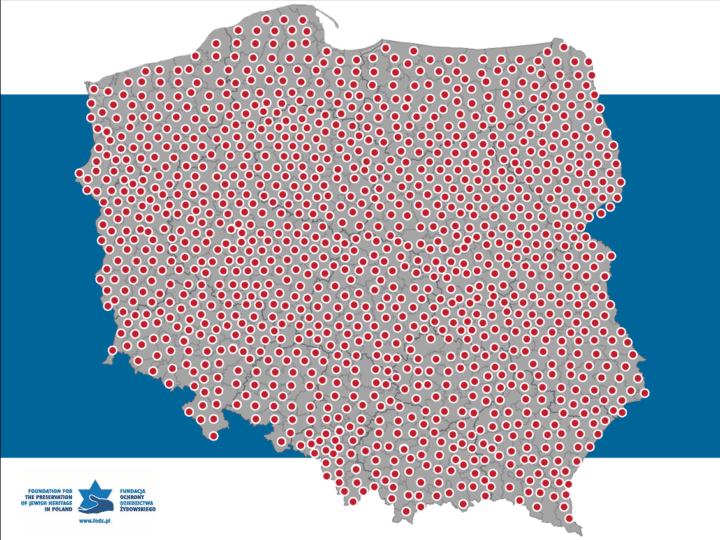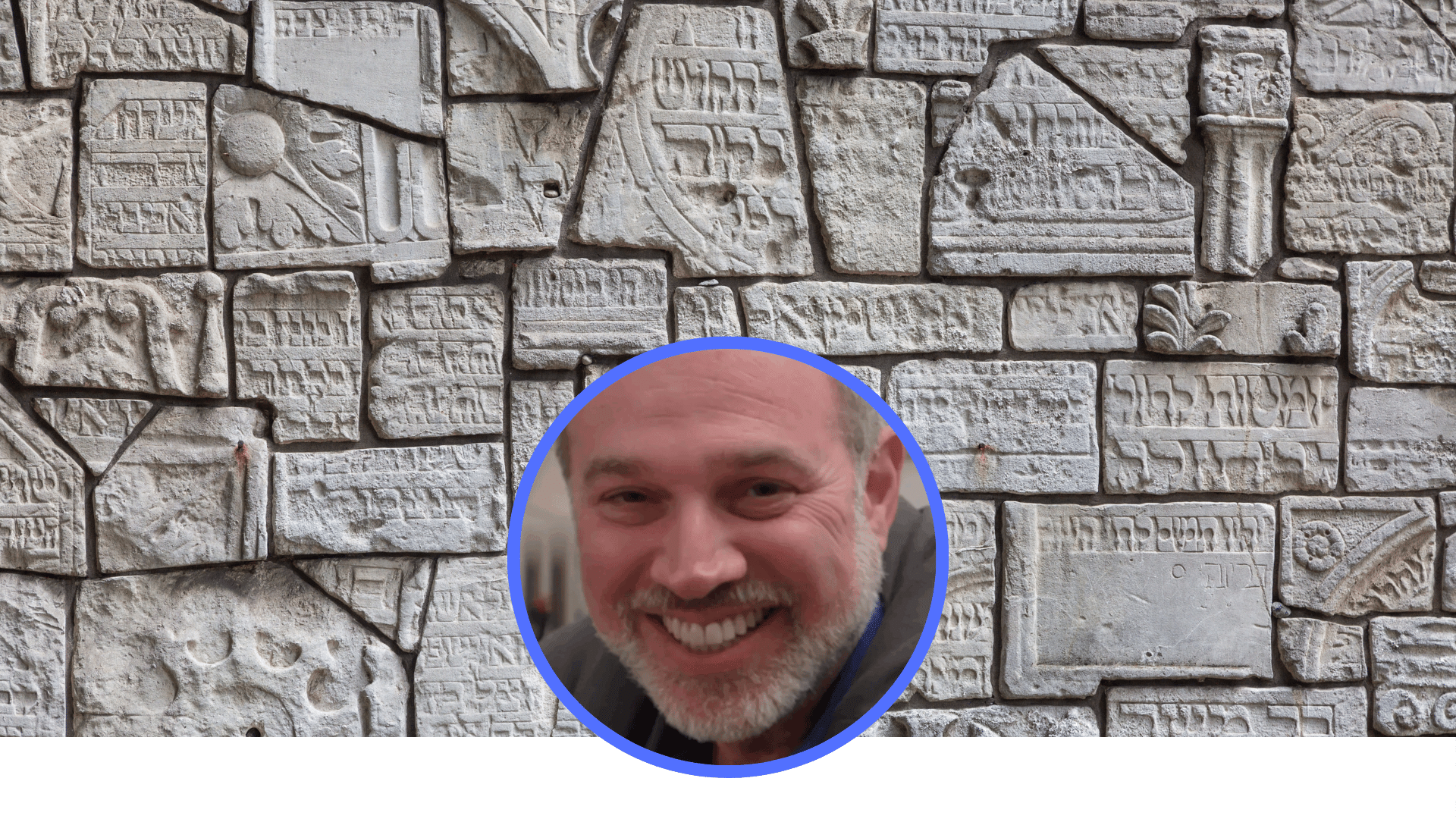In 1993, Dan Oren found himself with his mother at an abandoned, overgrown Jewish cemetery in Poland, looking at the tombstone of a long lost relative. “We stopped in a little town where my great-grandfather was from; it had been a shtetl. The cemetery was like a jungle, covered with foliage. We couldn’t get into it, but saw Sarah Chana’s grave on the edge. Of the 1,500 or so tombstones that had once been there, the cemetery had maybe a dozen still standing.”
The experience changed the course of Dan’s life, prompting him to focus on a genealogical mystery that took 20 years to solve (recounted in his book The Wedding Photo) — and become an active leader in the work of restoring and preserving Jewish cemeteries in Poland, including founding the public charity Friends of Jewish Heritage in Poland, which has supported cleanups and restorations at dozens of Polish Jewish cemeteries. “With knowledge comes responsibility,” he explains.
There are at least 1,200 Jewish cemeteries in Poland (see map), the vast majority desecrated, destroyed, abandoned, and forgotten. In recent years, service work focused on restoring and maintaining Jewish cemeteries across Poland has become a powerful act of remembrance and reconciliation. These cemeteries stand as solemn markers of vibrant communities that thrived for centuries before the devastation of the Holocaust.

Jewish Cemeteries in Poland. Map created by the Foundation for the Preservation of Jewish Heritage in Poland (FODŻ)
“The Jewish community in Poland is too small to take on all of the restoration work,” Dan points out. Today, volunteers from around the world are working to ensure that these sacred sites are not forgotten. Initiatives led by organizations such as the Foundation for the Preservation of Jewish Heritage in Poland (FODŻ), as well as grassroots volunteer groups, have made significant strides in documenting, cleaning, and restoring these burial sites. Participants often find gratification through the immediate, tangible outcomes of their efforts.
Service trips often include clearing overgrowth, resetting tombstones, and/or conducting historical research. Dan reflects that “Meaningful places still exist. While 90-95% of Jewish sites were destroyed in the Holocaust — homes, business, synagogues — not everything was. What has survived assumes even greater meaning.”
In honoring the memory of the dead, volunteers are helping to write a more compassionate and inclusive chapter in Poland’s history. Each grave cleaned is an act of respect, each cemetery restored is a testament to resilience. “Even without a genealogical connection,” Dan explains, “tending to the burial places of the deceased is one of the highest mitzvot in Judaism. Through this work, people are taking steps to restore dignity at a place where dignity was stolen.”
September 3–11, 2025, in collaboration with JewishGen and Jewish Heritage Travel, Dan Oren is leading a special sightseeing and service tour in which travelers have the opportunity to make a difference at three Jewish cemeteries with their own hands and hearts.
Find out more and sign up here.
Dan Oren, MD, is president of the public charity Friends of Jewish Heritage in Poland). Founded in 2016, FJHP has supported cleanups and restorations at dozens of Polish Jewish cemeteries. Dan is an adjunct Associate Professor of Psychiatry at Yale University and author of The Wedding Photo, a book on how to research genealogy and turn it into active preservation of family memory. He received a 2023 Medal of Honor Award from the Polish Ministry of Culture for his work in protecting Polish Jewish heritage and the 2024 Dr. Richard Plotz Volunteer of the Year Award from JewishGen. Dan is also program chair of the 2025 International Conference on Jewish Genealogy in Fort Wayne, Indiana.






